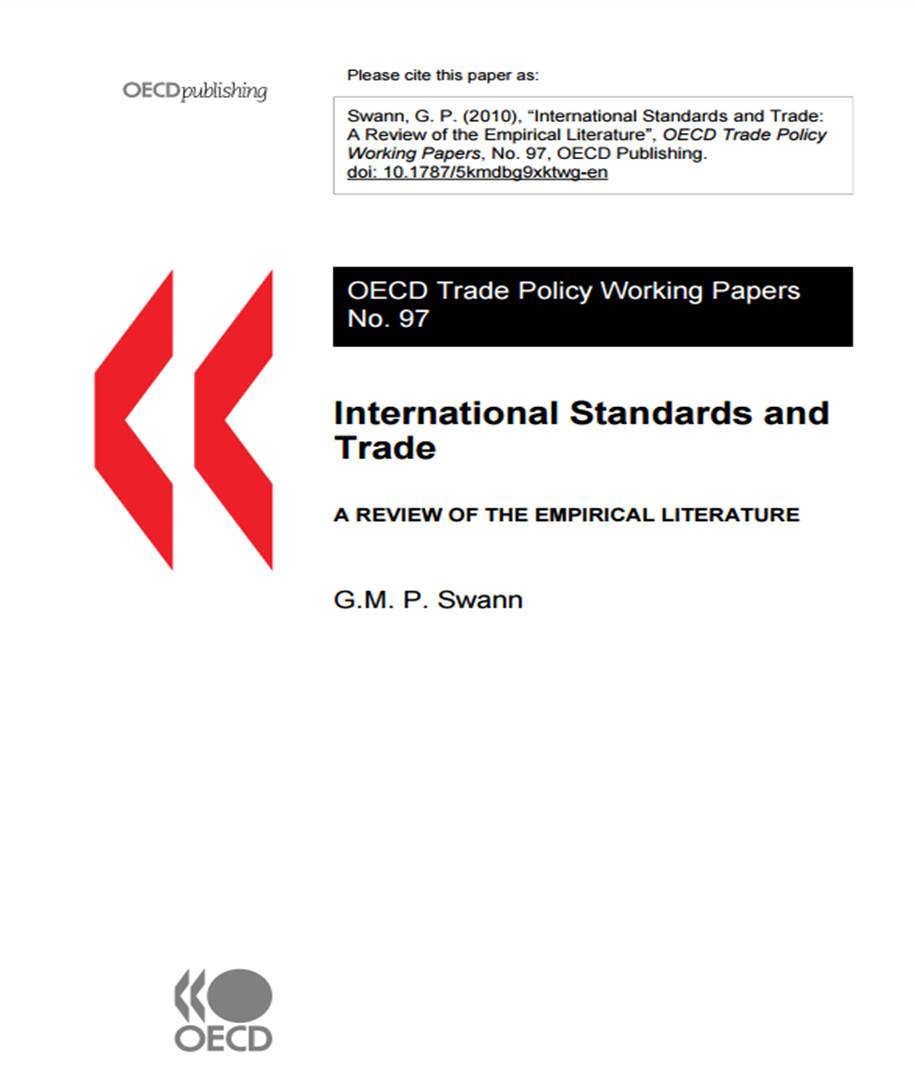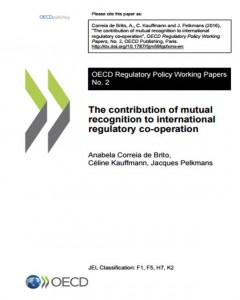Research
International Standards and Trade (OECD, 2010)
While there is a substantial body of literature on the economic theory of international standards, and their presumed effects, much less is known about how international standards work in practice. This paper surveys empirical studies investigating the relationship between international standards and trade. The main focus is on econometric studies using secondary data on international standards and trade, but surveys and some of the literature investigating the relationship between standards and other economic measures, such as productivity, growth and welfare are also summarised.
The paper sets out some conclusions that can be drawn from the econometric studies that have sought to estimate the relationship between international standards and trade:
- In most studies, when exporting countries use international standards, this has in most cases a positive (or at least neutral) effect on their export performance.
- When exporting countries use national standards (i.e. standards specific to country x), that may lead to superior export performance by x.
- When the importing countries also adopt international standards, the most common effect is also to increase imports. The exceptions can in part be explained.
- When the importing country uses national standards, the results are more diffuse. For studies that relate exclusively to voluntary standards, the effects are distributed quite evenly. For studies that relate to regulations (i.e. mandatory standards), the effects on imports tend to be negative.
A full copy of the report is available from the OECD website.





